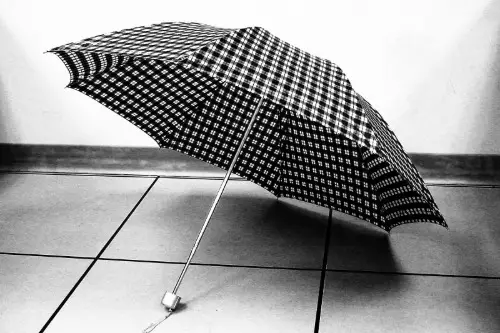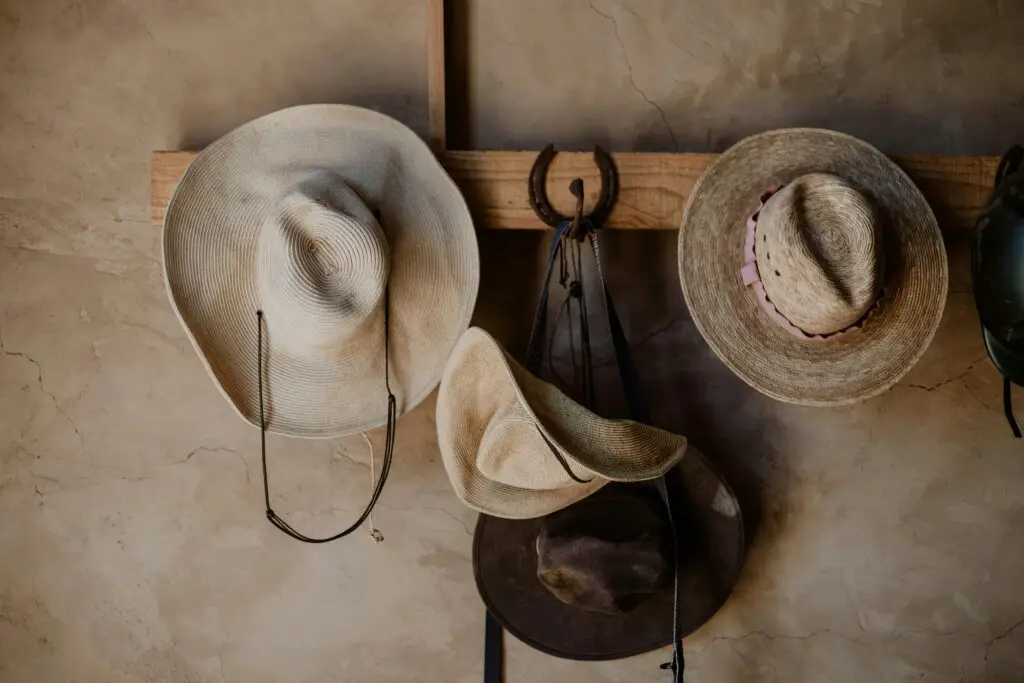1. Always Take Your Shoes Off Indoors (But Only in Some Places)

In many Midwestern and Northern states, kids are told to take their shoes off as soon as they come inside. This practice has less to do with manners and more to do with snow, mud, and slush that would ruin carpets during long winters. But in parts of the South, it’s less common, and kids may not hear the same rule at all. That makes it feel “regional,” since it’s so tied to weather and culture.
Still, kids are often told it’s just the polite thing to do, no further explanation needed. It becomes one of those ingrained habits that feels moral rather than practical. A child from Minnesota might think someone’s rude for leaving shoes on in a living room, while a kid from Georgia wouldn’t think twice. The divide shows how something rooted in climate just morphs into a generalized “rule.”
2. Don’t Wear White After Labor Day

Plenty of kids in the U.S. grow up hearing this rule, especially in the Northeast and Midwest. The idea supposedly started as a way for wealthy families to distinguish between summer and fall wardrobes in the late 19th and early 20th centuries. It was tied to class more than practicality, but many parents just pass it down without context. So, a kid in Boston might still hesitate to grab a white sweater in October even if no one else cares anymore.
The funny part is, it has zero functional reason behind it. White clothing doesn’t magically become less wearable once September hits. But the tradition hung on because grandparents and parents repeat it without really questioning it. Now, it lingers as one of those fashion “rules” that Americans enforce on kids even though nobody remembers where it came from.
3. Never Whistle Indoors

In some households, especially with roots in Appalachia or the South, kids get told that whistling indoors is bad luck. This belief goes back to European superstitions where whistling was thought to summon spirits or financial misfortune. Parents often repeat it almost automatically, not even knowing the old-world background. Kids just get told it’s “rude” without being told why.
Of course, there’s nothing inherently wrong with whistling in the house. But when enough parents warn against it, children grow up assuming it’s a universal no-no. Then they discover in adulthood that other regions don’t think twice about it. It’s a classic example of a random superstition turned into a household rule.
4. No Singing at the Dinner Table

In some parts of the Midwest and Pennsylvania Dutch areas, kids are told that singing at the dinner table is disrespectful. Historically, this came from religious and cultural traditions that emphasized meals as solemn, family-focused times. Parents may pass this down simply because that’s how they were raised. Kids, on the other hand, just assume it’s a universal ban.
The odd thing is that in other parts of the country, singing at meals isn’t even addressed. Some families actually encourage playful chatter and music. But because children in certain regions hear it framed as a moral or religious boundary, it sticks. They grow up thinking it’s a nationwide rule when it’s really just local custom.
5. Don’t Open an Umbrella Indoors

Plenty of American kids get told this rule, but it’s especially common in Southern families with deep superstition traditions. The idea is that it brings bad luck, though historically it may have been a practical warning from when umbrellas had sharp spokes that could break things inside. Still, parents rarely mention that part—kids just hear it’s “bad.”
It lingers because kids learn to obey without question, even if it makes no sense in a modern setting. They’ll pause before clicking open a compact umbrella in a school hallway. Meanwhile, kids in other places just treat it as a practical matter. The rule is a leftover superstition that doesn’t really fit today’s world.
6. Don’t Rock an Empty Chair

In parts of the South and Appalachia, children are warned against rocking an empty rocking chair. The superstition says it invites spirits to sit down, or even hastens death in the family. Most parents don’t go into detail, though—they just tell kids not to do it. So the “rule” becomes part of everyday behavior.
Of course, kids outside those areas rarely hear this one at all. That’s what makes it such a striking regionalism. For some families, it’s as obvious as not touching the stove. For others, it sounds like an odd bit of folklore rather than an actual rule.
7. Don’t Put Your Hat on the Bed

This one shows up in many Southern and Midwestern households, with parents telling kids never to leave a hat on the bed. The belief ties back to old superstitions about bad luck or death, especially in cowboy and working-class cultures. Kids usually don’t hear that history—they just get told not to do it. That makes it feel like a strange, unexplained ban.
Unlike some rules, this one doesn’t even have a practical angle. A hat on the bed won’t hurt anything. But generations pass it down as a form of respect, luck, or tradition. For kids, it becomes one of those things you just “know” without ever questioning.
8. Always Say “Yes, Ma’am” and “Yes, Sir”

In the South, children are often drilled to respond with “yes, ma’am” and “yes, sir.” The tradition comes from deeply rooted manners and hierarchical respect, dating back centuries. Parents in those regions see it as a basic marker of politeness. Kids grow up with it as automatic speech, not realizing it’s not universal.
Elsewhere, though, it can come across as overly formal or even strange. A child from Texas might get praised for it, while a child from Oregon might get asked why they’re so stiff. That contrast shows how a regional rule can feel like a moral absolute in one place and unnecessary in another. It highlights the way respect is taught differently across America.
9. Don’t Step Over Someone Lying Down

In some Appalachian and Southern households, kids are told not to step over someone who’s lying on the ground. The superstition says it will stunt their growth or bring them bad luck. Parents often don’t explain much more, but children take it seriously. It’s one of those warnings that sounds urgent even without details.
Elsewhere, it’s not mentioned at all, so it surprises people who hear it as adults. But in the regions where it’s common, it becomes ingrained. Even grown-ups might pause and step around instead of over. It’s a small but telling example of how folklore blends into child-rearing.
10. No Elbows on the Table

This rule shows up in plenty of American homes, but it’s emphasized especially in older East Coast families with European roots. Historically, it comes from etiquette traditions where elbows on the table were seen as sloppy or disrespectful. Parents pass it down more out of habit than necessity. Kids often hear it repeated without explanation.
The irony is, elbows don’t really cause problems at the table. But the rule became a shorthand for teaching manners. In some regions, it’s enforced constantly, while in others, it’s barely mentioned. Children absorb it as law without ever asking why it matters.
11. Always Eat Black-Eyed Peas on New Year’s Day

This one is big in the South, where kids grow up hearing that eating black-eyed peas on New Year’s Day brings good luck. The tradition traces back to African and Southern food customs, particularly among enslaved people who made it symbolic of prosperity. Parents don’t usually explain all that history—they just insist it’s “for luck.” Kids accept it as a must-do ritual.
Elsewhere in the country, kids may never hear of it at all. That makes it one of those strongly regional rules that sounds strange to outsiders. For Southern kids, though, missing the tradition feels like tempting fate. It’s a classic case of food carrying a superstitious weight.
12. Don’t Chew Gum in Church

Many kids in Catholic and Baptist-heavy areas, especially the Midwest and South, grow up being told never to chew gum in church. The reasoning is partly practical—it’s distracting and disrespectful—but it’s also framed as a moral line. Parents rarely just say “don’t be rude,” they frame it as a clear rule. Children often don’t know it’s not universally enforced.
In other parts of the country, church culture might be more relaxed. So while one child is terrified of breaking this rule, another wouldn’t even think about it. The seriousness of it depends heavily on region and denomination. That makes it one of those rules that feels absolute until you see otherwise.
13. Don’t Kill a Spider Inside

In certain rural areas, especially in the South, kids get told that killing a spider indoors brings bad luck. The superstition may come from old farming traditions where spiders were considered protectors of crops. Parents may not explain that part, though—they just say not to do it. So kids grow up with a mix of fear and respect for the tiny creatures.
Elsewhere, it’s more common to squash them without a second thought. That’s why this rule stands out as so regional. A child in Louisiana might get scolded for killing a spider, while a child in Colorado might get praised for bravery. It shows how even pest control becomes wrapped up in folklore.
14. Don’t Sweep Dirt Out the Door After Dark

In some Southern and Appalachian families, children hear that sweeping dirt out the door after dark brings bad luck. The belief has roots in old European and African superstitions carried into rural American life. Parents might not explain any of that—they just forbid it. So the rule gets followed without much thought.
Practically speaking, it doesn’t make a difference when you sweep. But because the tradition feels urgent, kids obey it instinctively. Later, many realize it’s not common outside their region. It’s a perfect example of a rule that lingers mostly because no one questions it.
15. Don’t Leave the Porch Light Off on Halloween

In many Midwestern and New England towns, kids are taught that turning off the porch light on Halloween is practically a crime. Parents frame it as a sign of being unfriendly, even if there’s no intention behind it. Children assume the rule is universal and that dark porches mean something ominous. They rarely learn that in many places, people simply forget or don’t participate.
In other regions—especially rural Western areas—the porch light “rule” isn’t emphasized at all. Families might hand out candy from barns, truck beds, or community centers instead. So the idea that a porch light dictates social behavior doesn’t exist. Kids raised with the rule only realize its regional nature once they leave home.
16. Always Bring a Dish to Someone’s House

In parts of the Midwest and Mountain West, kids grow up hearing that you should never show up at someone’s house without bringing food. Parents present it as basic hospitality, even when visiting close friends. Children absorb the idea that arriving empty-handed is rude, almost offensive. They rarely hear that this expectation came from farming communities where sharing food was survival-based.
In cities or coastal regions, the rule barely exists. Guests might be told explicitly not to bring anything at all. That contrast surprises Midwestern kids when they learn their ingrained habit isn’t universal. It shows how deeply regional ideas of hospitality can shape childhood manners.
17. Don’t Sit in the Front Seat Until You’re Invited

In many Southern and Southwestern families, kids learn that they must wait to be told which seat to take in a car. Parents consider it a sign of respect for elders and authority figures. Kids simply accept that hopping into the front seat uninvited is wrong. They’re rarely told that this custom comes from older etiquette norms tied to family hierarchy.
In other parts of the country, children choose seats freely with no ceremony. The idea of waiting for permission doesn’t enter the picture. That difference can confuse kids when they ride with families from other regions. It’s another case of a regional courtesy that gets treated like a universal law.
18. Always Leave the Last Piece

Across the Midwest and Great Plains, kids are taught never to take the last piece of food, whether it’s dessert or a side dish. Parents often frame it as politeness without explaining the social roots behind it. Children grow up thinking it’s rude to finish something, even when everyone wants them to take it. They’re rarely told it stems from community-focused cultures where taking more could appear greedy.
In other regions, finishing the last piece is normal—even encouraged. Families might ask someone to “just take it already.” Midwestern kids can feel awkward in those situations, unsure of the unspoken rules. This tiny etiquette quirk highlights how local ideas of generosity differ widely.
19. Don’t Slam the Car Door in the Driveway

In parts of the Northeast and Mid-Atlantic, kids are warned never to slam a car door when arriving at someone’s home. Parents describe it as disruptive or rude, even if no one is asleep. Children often internalize the rule without ever understanding why it matters. They assume everyone everywhere avoids slamming doors.
But in other regions, especially the West, door-slamming isn’t even discussed. People close doors however they want, especially in windy areas where you almost have to slam them. Kids from slam-averse families can come off as overly cautious. It’s a reminder that even household noise levels can be region-specific “rules.”
20. Don’t Cross Your Eyes or They’ll Stick That Way

This warning is especially common in parts of the South and rural Midwest, where old folk sayings get passed down unchanged. Parents tell kids not to cross their eyes, insisting they’ll stay that way forever. Children take it seriously, assuming it’s a medical fact. They rarely learn it was originally a playful scare tactic used to keep kids from making faces.
In many urban or coastal areas, the warning never comes up at all. Kids cross their eyes freely without fear of “permanent damage.” Those who grew up with the rule often feel silly when they learn the truth. It’s an example of a harmless myth that lingers mostly because it’s fun for adults to repeat.
21. Never Leave the House With Wet Hair

In colder Northern states, kids are warned never to leave the house with wet hair. Parents insist it will lead to getting sick, even though colds come from viruses, not cold air. Children take the rule at face value and follow it religiously. They seldom hear that the warning originally came from practical concerns about freezing temperatures.
In warmer regions, no one cares if a child walks outside with damp hair. The idea that it’s risky barely registers. Kids from colder climates discover quickly that the rule doesn’t make sense everywhere. It becomes a perfect example of a weather-based guideline turned universal “truth” for no clear reason.
This post 21 Regional Rules Americans Teach Kids But No One Knows Why was first published on American Charm.


